Wooden chopping boards were the norm for thousands of years and this only changed in the last few decades. Once plastic was invented people started making chopping boards out of this synthetic material.
It was assumed that because plastic boards are easy to wipe down and stay looking cleaner for longer they are better. However recent studies have shown that plastic boards are unhealthier and that wood is a far better choice.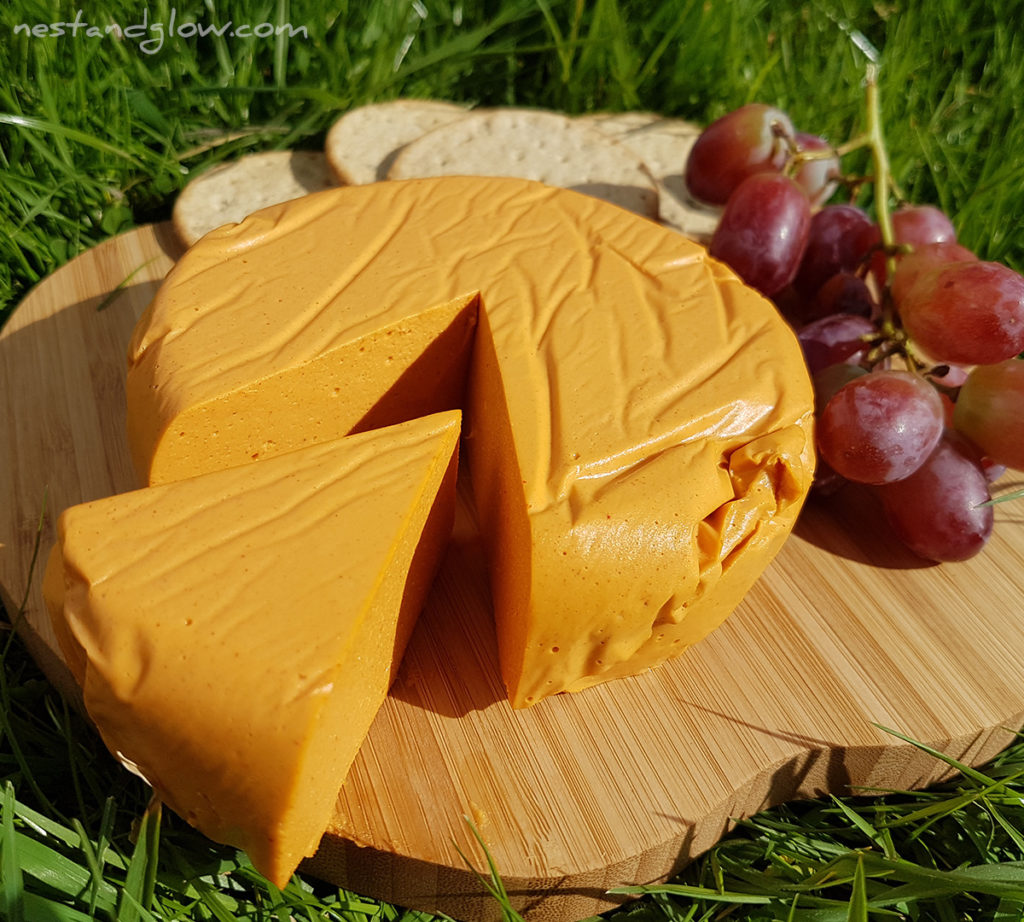
My smoked cashew cheese on a bamboo board.
Why Wood is a Better Chopping Board Than Plastic
Wood is porous and plastic isn’t so you would be forgiven for assuming that plastic is better as nothing is absorbed.
However despite plastic boards looking cleaner and easier to keep clean, the small scars from daily use are a breeding hot spot for bacteria. They can quickly multiply if not cleaned properly and leave behind harmful toxins. The tiny scars in plastic make it near impossible to clean properly meaning they will hold onto bacteria. A plastic board a few months old can have thousands of scars.
With a wooden board, any moisture is drawn into the centre of the board where bacteria dies and can’t multiply. In a test where food was cut on boards then not washed, the wooden boards were free of bacteria the next day and the bacteria thrived on plastic boards. Wood does have natural antibacterial properties simply through its capillary action that wicks away moisture from the surface.
Maple and beech are often considered the best wooden chopping/cutting boards as they have a long life, won’t scar easily and have somewhat self-healing properties. Some woods like maple and beech can self-heal meaning that damage like scratches will partly repair automatically. Choose a wood that fits your lifestyle and budget. Bamboo is a good choice as it’s very environmentally friendly, just remember to choose one that uses a glue without formaldehyde.
Once a plastic chopping board has reached the end of its useful life it will still exist for over a thousand more years. A wood chopping board will totally decompose in a few years.
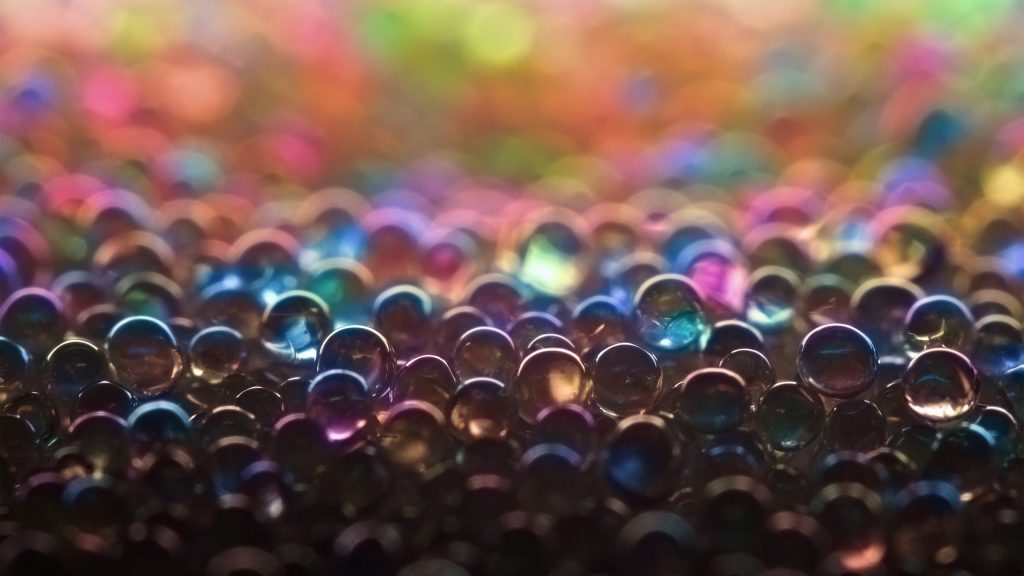
Microplastics From Plastic Chopping Boards
It’s impossible to chop on a plastic cutting board without slicing the plastic and leaving visible scars. What you can’t see is that as the plastic is cut you risk putting microplastics directly into your food. Scars upon scars on a plastic board results in plastic fibres being released from the board.
The long-term effects of eating microplastics are unknown. However, eating plastic is highly unlikely to be good so it’s best to minimise microplastics in your diet.
Did you know just plastic floating around your home landing on food is a source of microplastics in food?
Plastic chopping boards can be put in the dishwasher leaving people thinking they’re clean. However A used plastic board will have loose plastic fibres that will be released during the dishwasher cycle. These microplastics will either end up in the water supply or on dishes. A hot dishwasher cycle will kill the bacteria but it’s likely to still leave behind hard to reach debris in the scars that bacteria will quickly start thriving and multiplying in.
Taking Care of a Wooden Chopping Board
A wood chopping board will last for many years provided it’s well cared for.
Rinse your wooden board under the hot tap with soap after each use and leave at an angle, just a slight one is enough, to let it air dry. Allowing a wood board to dry is vital to make it last for years and not rot. Use castile soap from your local health food shop for a natural and safe soap made from vegetable oils.
Every few weeks it’s recommended to sprinkle coarse salt over a wood board and leave overnight. This draws out the moisture to dry the board and stop bacteria breeding. Then wipe with a slice of lemon or vinegar to sanitise before rinsing under the hot tap.
To keep a hardwood board looking great wipe once a month with either walnut or almond oil in the direction of the grain using a dry cloth. Use enough oil until the wood stops absorbing then leave to dry overnight. Do not use sunflower or olive oil as these go rancid quickly and are not suitable for oiling chopping boards.
Never put a wooden chopping board in the dishwasher as it damages it and can be ruined in one cycle.
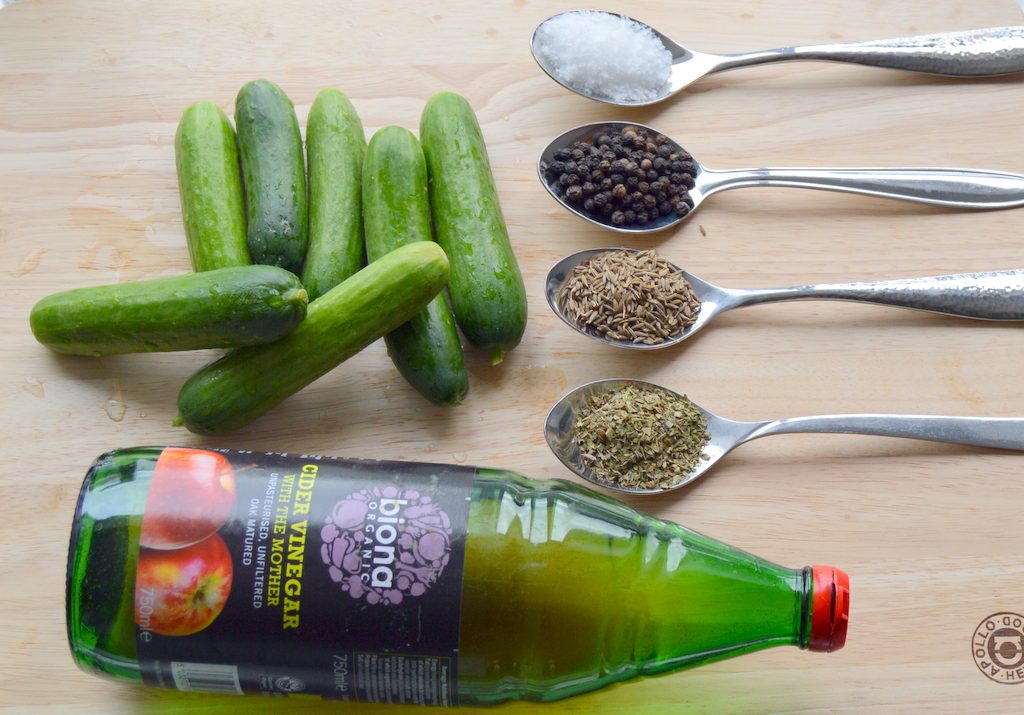
Wooden chopping board with the ingredients for 24-hour pickles.
Never Use Glass Chopping Boards
They will just dull your knives quickly and risk injuring yourself as the board is slippery. Often they are sold as kitchen protectors rather than chopping boards. They have some uses, but none involve chopping.
Final Thoughts
The official advice from the FDA is that both plastic and wood are safe if cared for correctly. However this article has shown that plastic can be far unsafer with hard to clean bacteria lurking in the scars.
Wood naturally doesn’t have issues with bacterial multiplying as the moisture is drawn into the board where it dies and can’t breed.
As plastic boards take thousands of years to biodegrade and can release microplastics I believe wood to be a far superior material for a chopping board.
What do you think about plastic and wooden chopping boards? Let me know in the comments below if you have any thoughts.
8 Common Foods That Contain Plastic
Did you know many common foods such as tea bags and tinned tomatoes contain plastic?
Image of bacteria from Bacteria Lab.

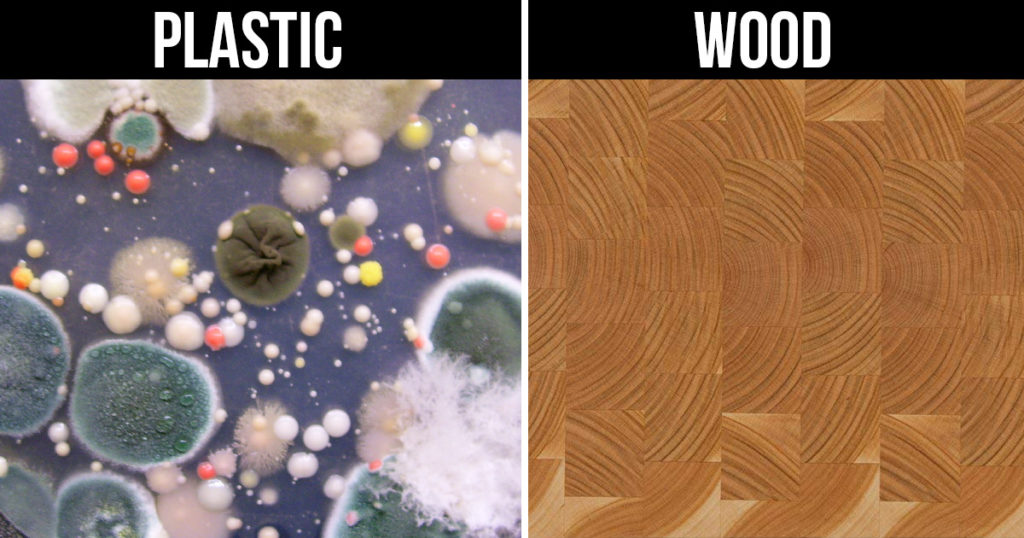
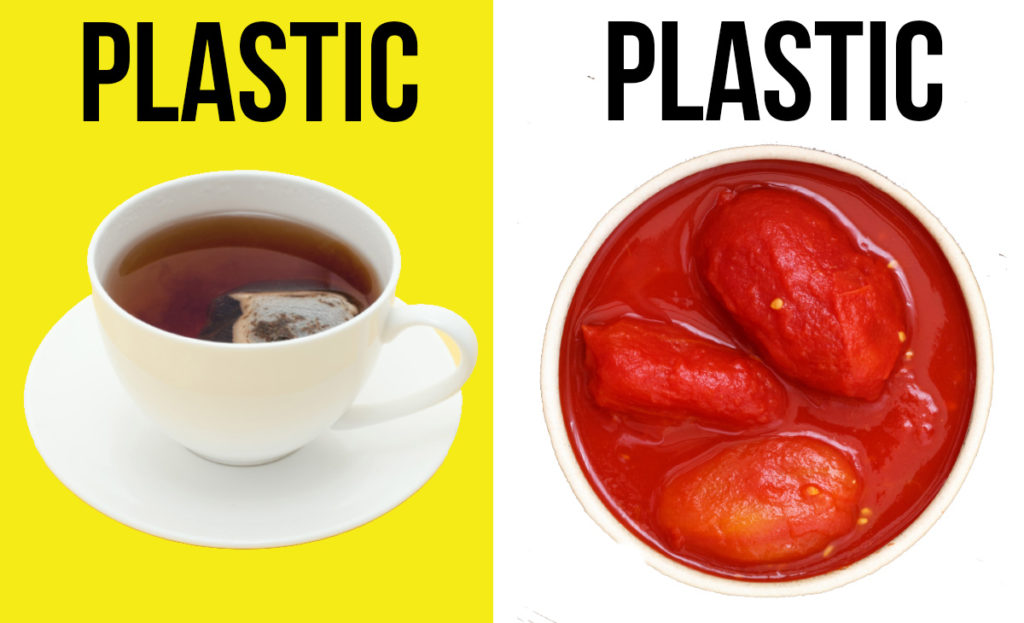
This is too much
Sorry not sure I understand, could you elaborate to help me?
Thank you for this information
I was about to go out to buy plastic chopping board because I thought they were cleaner and that wood harboured more bacteria
I have 6 wood chopping boards and will use the instead
Nice
interesting article — made me think — I do use both but maybe I should stick to the wooden ones for food prep and use the plastic ones for crafting
You say “recent studies ” but give no reference. Please understand that I am a long time believer in wood for cutting boards currently researching for a magazine article and want to get as much info as I can. ‘Studies’ are quoted rather often but with no indication of how thorough the studies were.
Thanks
Richard